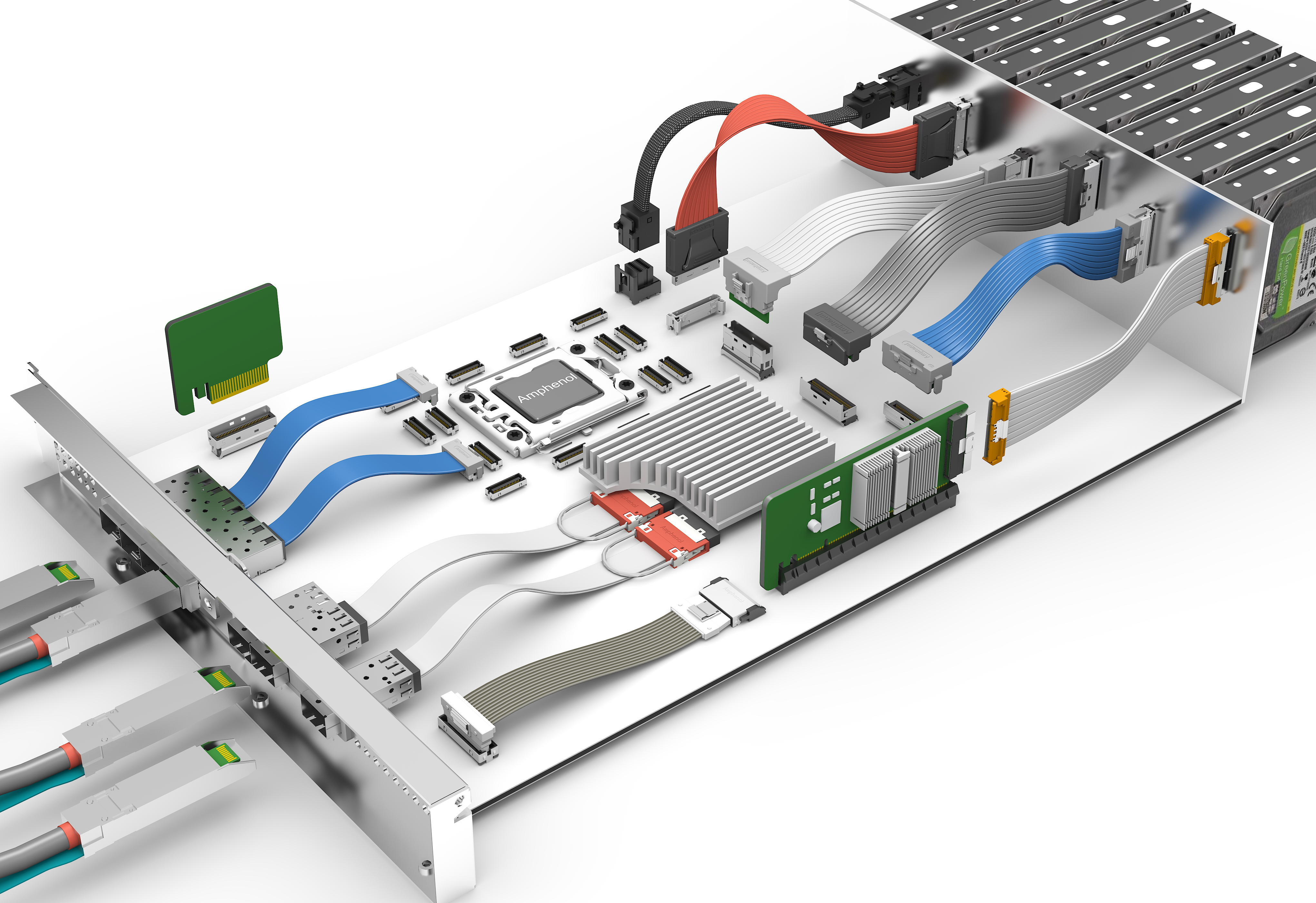By Carolyn Mathas, contributing writer
Amphenol states that its OverPass cable system provides superior signal-integrity performance combined with greater design control. The straightforward connector concept allows for high-speed signal transfer to twinax cables, creating a simple, low-loss, direct link to pluggable modules or system-wide. Target applications include communications, industrial, and instrumentation and medical.
The solution features a 38-position, 0.8-mm-pitch connector, with each port offering four channels to increase port density. OverPass supports 200G+ applications, and high-speed solutions are available in 10 Gbits/s, 28 Gbits/s, 56 Gbits/s, 112 Gbits/s PAM4 per lane signaling speeds. Resonance dampening features allow greater signal performance, while the design minimizes crosstalk and transmission line impedance discontinuity across the connector interface. Cable constructions include double-ended, Y, and breakout cables.

The Amphenol OverPass cable system offers designers simplicity and greater control over their designs, enabling high speeds while effectively managing thermal challenges.
Designers using OverPass have greater flexibility in IC placement, which is important when dealing with system-level thermal challenges and attempting to optimize signal speed and density. Multiple interface choices include SFP , QSFP , QSFP DD , OSFP , and cabled backplane interfaces such as ExaMAX andPaladin . High-speed, low-loss bulk cable from Spectra-Strip provides optimized wire performance for wire management, termination, and routing.
Internal near-chip interfaces include low-profile SlimSAS , Mini Cool Edge IO , ExtremePort Z-Link , and LinkOVER . The portfolio also offers cage configurations and layouts such as stacked, ganged, and belly-to-belly for maximum linear board port density. Designers can mix cable and board differential pairs into the same connector for hybrid applications, enabling the routing of both low-speed/low-reach links through the board and high-speed/high-reach links to be cabled to the chip site.
Advertisement
Learn more about Amphenol





